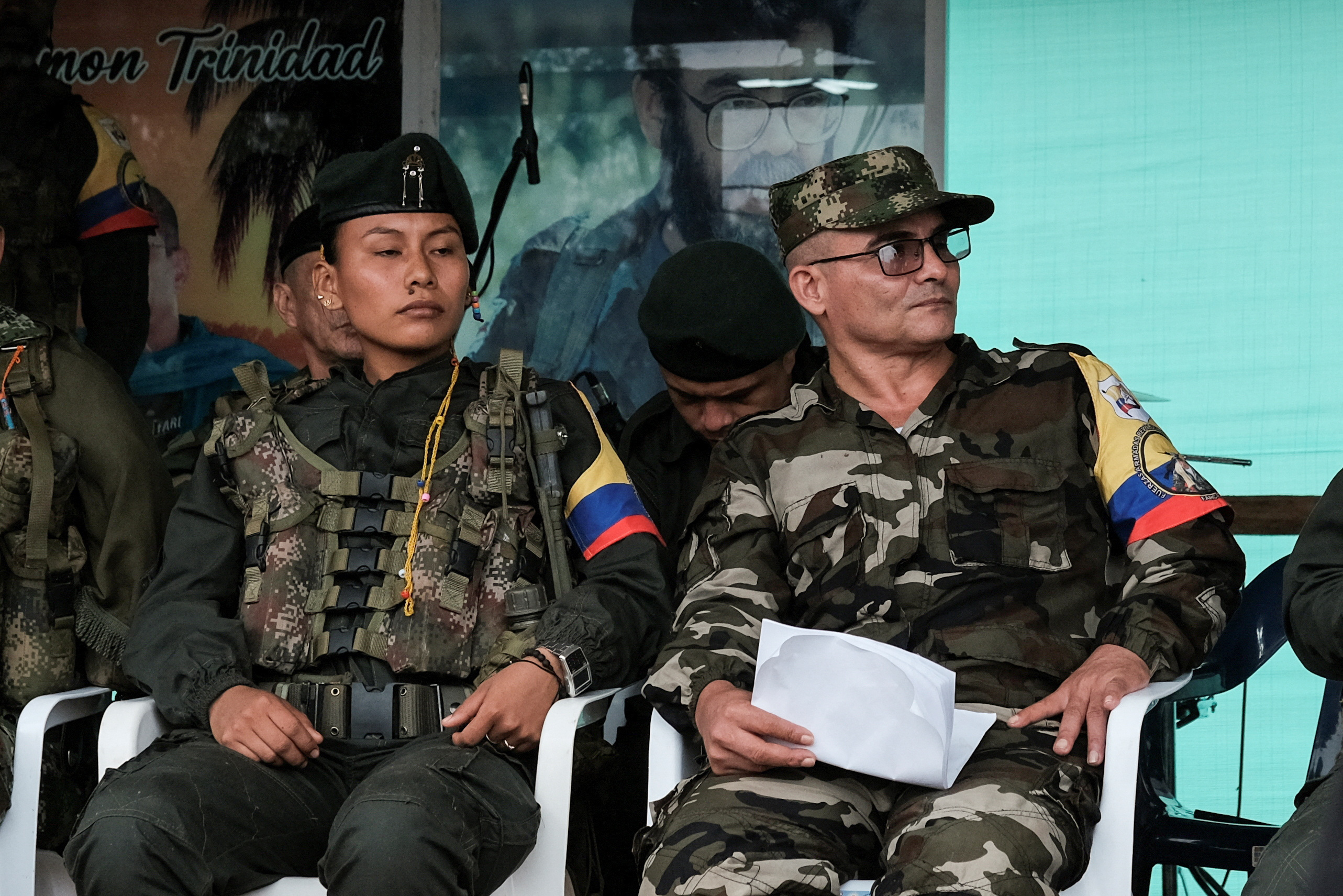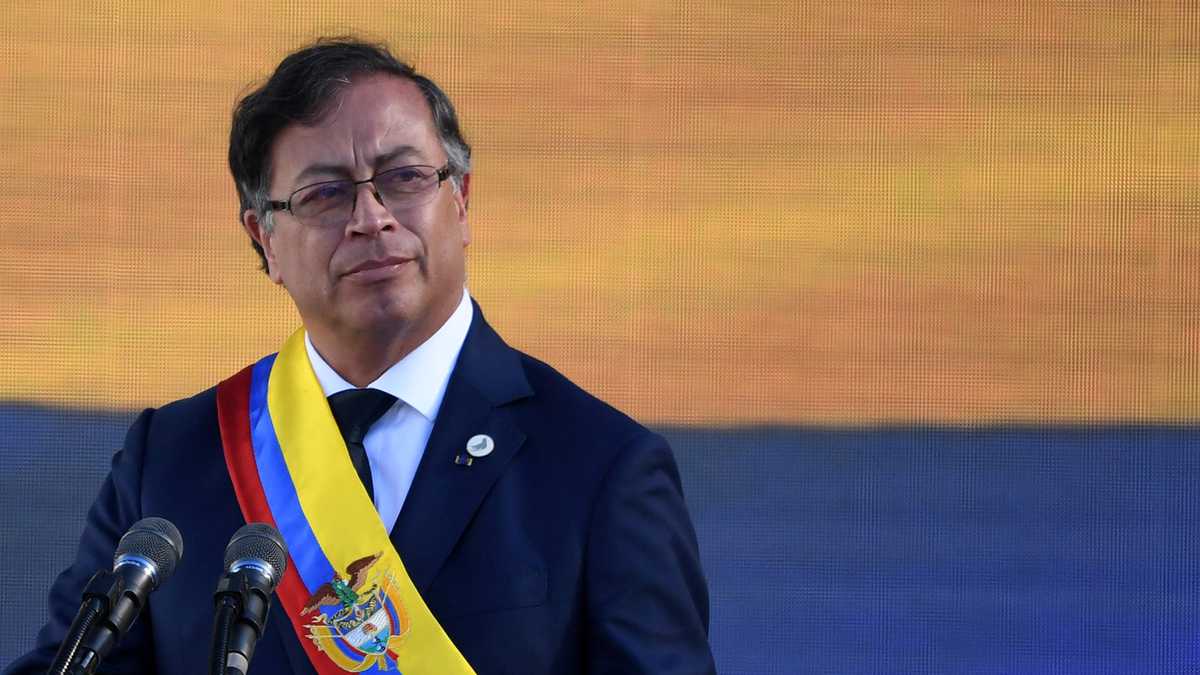Reports of an explosion and exchanges of fire between armed fighters and authorities in Jamundi, located in Valle del Cauca in southern Colombia, which is known for the heavy presence of a splinter faction of the Revolutionary Armed Forces of Colombia known as Estado Mayor Central (FARC-EMC), were reported early Wednesday morning.
Attacks Against Security Forces
The violence reportedly began at around 05:30 local time when an explosion rocked the center of the municipality, according to civilians at the scene. Following the explosion, reports of gunfire emerged from the municipality, which was previously the site of a large-scale assault by members of the FARC-EMC. At least three people were wounded in the attacks, including a non-commissioned officer, a police officer, and a civilian.
Civilians criticized authorities for their perceived lack of action, stating that “the Army doesn’t want to do anything. The police do nothing. 20 days ago, the guerrilla attacked a neighborhood. They made a roadblock; they took cars; they shot down the houses.”
Another explosive attack was reported around 06:50 local time when a motorcycle laden with explosives detonated near a park located in the town center, where a number of banks and other private businesses are located. At 12:15 local time, another attack was reported. Two suspects on a motorcycle threw a hand grenade at a police station within the municipality, according to a police officer at the scene.
Se reportó la explosión de una motocicleta-bomba en el centro del municipio de Jamundí, Valle del Cauca. El hecho violento se registró minutos después del hostigamiento a la subestación de Policía de Potrerito. https://t.co/if1kX8qDUN pic.twitter.com/w4yIWpMAZF
— Revista Semana (@RevistaSemana) June 12, 2024
“Unfortunately, in addition to the incident in Potrerito, a new act of violence has been reported in the center of Jamundi. A motorcycle bomb detonated near the main park and diagonally across from Bancolombia. This act has resulted in several injuries, including a sergeant and a patrol car that were patrolling the area at the time of the explosion. The National Police is currently on site, controlling the area and securing the zone to prevent further incidents,” the Mayor of Jamundi said in a statement.
Following the previous attack by the FARC-EMC last month, the Colombian government organized a security council to address the rising violence in Valle del Cauca and the neighboring Cauca department. In response to the attacks, the mayor of Cali, the capital of Valle del Cauca, offered a 100 million peso (about 24,600 USD) reward for information, which resulted in the arrest of those behind the motorcycle bomb. Furthermore, Cali’s mayor’s office stated that an additional 100 police and soldiers will be sent to Jamundi.
“Today the terrorists in Jamundi left several injured. It is not acceptable that we have returned to this point. The National Government must toughen its strategy against dissidents with the sole objective of defeating them. From Cali we offer up to $100 million pesos for information that leads to those responsible for the motorcycle bomb,” the mayor, Alejandro Eder, stated in a post on X.
Hoy los terroristas atacaron a civiles en Jamundí. No es aceptable que hayamos vuelto a este punto.
El Gobierno Nacional debe endurecer su estrategia contra las disidencias con el único objetivo de derrotarlas. Desde Cali ofrecemos hasta $100 millones de pesos por información de… https://t.co/mCYW00PuwL
— Alejandro Eder (@alejoeder) June 12, 2024
In addition to the mayor’s promise of a reward, Defense Minister Ivan Velasquez announced that the Ministry of Defense would pay 100 million pesos for information leading to the arrest of the perpetrators.
“We are going to find those responsible for these attacks. We are offering up to 100 million pesos as a reward for those who provide the necessary and sufficient information to capture these criminals,” Velasquez said in a statement.
A Bloody Conflict
Cauca and Valle del Cauca have been the battleground between government forces and the FARC-EMC for decades. This conflict has only heated up recently with the dissolution of a ceasefire between the government and the FARC-EMC in March, along with the resumption of military operations against the group.
On May 3rd, four Colombian soldiers lost their lives in Cauca during a firefight between authorities and the FARC-EMC after arriving in Argelia, a small town within the department. The soldiers successfully captured eight members of the Carlos Patino front of the FARC-EMC and were awaiting air transport, which was ultimately delayed, leading an estimated 200 members of the FARC to launch an attack on the 78 soldiers.
Tensions have been high between the FARC-EMC and the Colombian government, with the two previously failing to reach a temporary ceasefire due to an order to free hostages captured in April. Despite the two failing to reach an agreement, the hostages, three employees of Colombia’s Prosecutor’s Office and one soldier, were eventually released by the armed group with help from the Colombian Red Cross and the UN’s mission in Colombia.
Peace Talks Improbable as Violence Escalates
The attacks are the latest action taken by the FARC-EMC in their war against the government following the suspension of the ceasefire in March, a suspension the FARC condemned in its statement regarding the release of the hostages.
“The hasty decisions it [the Colombian government] made against the FARC-EP that led to the breakdown of the ceasefire, the constant accusations against our commanders, and its vain attempt to hold a dialogue table with a minority that is not part of the FARC-EP and does not represent even 5 percent of our guerrilla force is a bad path that it took, and that is not going to ensure the objectives that we had jointly proposed since we began that process of dialogue, which was nothing more than setting us on the path of a political and dialogue solution to overcome the structural elements that generated the conflict in Colombia.”

Attacks against government forces have further harmed relations between the FARC-EMC and the Colombian government, preventing any thought of a ceasefire from entering the minds of Colombians across the country. While the government has previously stated they would not reenter peace talks with the FARC-EMC, some believed talks would reengage due to the long history of the FARC or Colombian government breaking ceasefires before eventually returning to negotiations.
These attacks do not mean that the government will refuse to pursue the reopening of peace talks with the FARC. It remains possible that Colombian authorities will use the suspension of the ceasefire to weaken the FARC-EMC further, allowing the government to both have an upper hand if negotiations are resumed while also curbing the FARC-EMC’s growth that was seen under the previous ceasefires with the government.
This refusal to reenter peace talks with the FARC-EMC can also be seen as a departure from President Gustavo Petro’s controversial plan to bring “total peace” to Colombia, ending the 60-year-long civil struggle that led to the deaths of 450,000 people, while more remain missing. This plan is characterized by the president’s attempts to make peace with the various armed groups active in Colombia as opposed to military action in an effort to wipe them out.

This policy has achieved mixed results; while ceasefires with the FARC-EMC have been negotiated, talks have previously stalled with the National Liberation Army (ELN), a similar communist guerilla group.

